
If you’re interested in joining the group as a postdoc, or for a doctoral thesis or student project, please contact Aristides Arrenberg.
Prof. Dr. Aristides Arrenberg
Group Leader – aristides.arrenberg{at}uni-tuebingen.de
+49 (0)7071 29 88798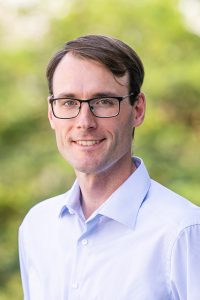 I studied biochemistry and neuroscience at the University of Hamburg and the University of California San Francisco (UCSF). During my doctoral thesis at UCSF (2005-2010), I implemented and characterized optogenetic tools in zebrafish and used them to study visual, oculomotor and cardiovascular function. Oftentimes it is necessary to develop new experimental tools before being able to answer biological questions, as the community of zebrafish systems neuroscientists is young and growing. During my postdoctoral time at the University of Freiburg I set up a two-photon-microscope and used it to investigate the role of a specific population of dopaminergic neurons in locomotion. At the University of Tübingen, my laboratory continues to work on vision and oculomotor circuits and furthermore started to study the ecological adaptations of the zebrafish brain to its habitat and behavior.
I studied biochemistry and neuroscience at the University of Hamburg and the University of California San Francisco (UCSF). During my doctoral thesis at UCSF (2005-2010), I implemented and characterized optogenetic tools in zebrafish and used them to study visual, oculomotor and cardiovascular function. Oftentimes it is necessary to develop new experimental tools before being able to answer biological questions, as the community of zebrafish systems neuroscientists is young and growing. During my postdoctoral time at the University of Freiburg I set up a two-photon-microscope and used it to investigate the role of a specific population of dopaminergic neurons in locomotion. At the University of Tübingen, my laboratory continues to work on vision and oculomotor circuits and furthermore started to study the ecological adaptations of the zebrafish brain to its habitat and behavior.
Dr. Florian Dehmelt
Postdoc – florian.dehmelt{at}uni-tuebingen.de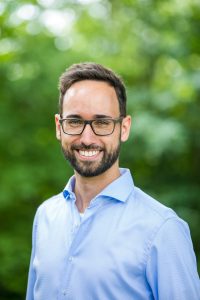 As a physicist and biologist, I’m interested in understanding how constraints and perturbations shape neural network dynamics (Calaim, Dehmelt, Gonçalves et al. 2022 eLife). To provide a reality-check on previous spiking network simulations, I was drawn towards the reflexive oculomotor behaviours of zebrafish larvae, and the concurrent imaging of neural activity. At Arrenberg lab, my current focus is on data analysis, visualisation and methods development. Using a spherical, nearly full-field visual stimulation arena, we were able to demonstrate the anisotropic dependence of OKR on stimulus location and its relation to the anisotropic retinal photoreceptor density (Dehmelt, Meier, Hinz et al. 2021 eLife). We are always happy to share our methods and setups with the zebrafish community, and have published mostly open-source eyetracking solutions (Dehmelt et al. 2018 Nature Protocols). I’ve also had the opportunity to contribute to refinement studies in lab animal science, including zebrafish anaesthesia (Leyden et al. 2022 Front Vet Sci). Both within and outside the lab, I’m passionate about science outreach and communications.
As a physicist and biologist, I’m interested in understanding how constraints and perturbations shape neural network dynamics (Calaim, Dehmelt, Gonçalves et al. 2022 eLife). To provide a reality-check on previous spiking network simulations, I was drawn towards the reflexive oculomotor behaviours of zebrafish larvae, and the concurrent imaging of neural activity. At Arrenberg lab, my current focus is on data analysis, visualisation and methods development. Using a spherical, nearly full-field visual stimulation arena, we were able to demonstrate the anisotropic dependence of OKR on stimulus location and its relation to the anisotropic retinal photoreceptor density (Dehmelt, Meier, Hinz et al. 2021 eLife). We are always happy to share our methods and setups with the zebrafish community, and have published mostly open-source eyetracking solutions (Dehmelt et al. 2018 Nature Protocols). I’ve also had the opportunity to contribute to refinement studies in lab animal science, including zebrafish anaesthesia (Leyden et al. 2022 Front Vet Sci). Both within and outside the lab, I’m passionate about science outreach and communications.
Dr. Christian Brysch
Postdoc – christian.brysch{at}cin.uni-tuebingen.de I got my Bachelor’s and Master’s degree in Biology from the Technical University Munich. I joined the Arrenberg-Lab initially in Freiburg and then moved with the lab to the CIN in Tübingen. In my project, I use 2 Photon-Calcium imaging to investigate the neuronal integration of eye velocity in the zebrafish hindbrain that helps in retinal image stabilization. The structure responsible for that (the neural integrator for horizontal eye movements) transforms a transient eye velocity input into a persistent eye position output, which is in turn relayed to the motoneurons to keep the eyes stable. Understanding this mechanism and the structures involved will help us to elucidate the formation of short-term memory and how it is formed.
I got my Bachelor’s and Master’s degree in Biology from the Technical University Munich. I joined the Arrenberg-Lab initially in Freiburg and then moved with the lab to the CIN in Tübingen. In my project, I use 2 Photon-Calcium imaging to investigate the neuronal integration of eye velocity in the zebrafish hindbrain that helps in retinal image stabilization. The structure responsible for that (the neural integrator for horizontal eye movements) transforms a transient eye velocity input into a persistent eye position output, which is in turn relayed to the motoneurons to keep the eyes stable. Understanding this mechanism and the structures involved will help us to elucidate the formation of short-term memory and how it is formed.
Dr. habil. Gregor Hardiess
Senior Researcher – gregor.hardiess{at}uni-tuebingen.de
After studying Biology (specializing in Animal Physiology) at the University of Bayreuth, I came to Tübingen in 2003 to deepen my research in the field of Neuroscience. In 2007, I finished my doctoral thesis on the topic of ‘active vision’ at the Chair of Cognitive Neuroscience (Prof. Hanspeter A. Mallot) and have been habilitated at the University of Tübingen in the field of Neuroscience and Behavioral Biology since 2015. My research areas include the two major areas of visual & spatial cognition in humans. Within visual cognition, my research focus is on the topics of decision making, working memory, eye (and head) movements, and attention. I research how both external (task setting, environment, instructions) and internal conditions (behavioral repertoire, conditions, costs of the tasks) affect the type of behavior selection in so-called trade-off tasks. Such decision-making processes can be examined and described both at the group level and at the inter-individual level. As far as spatial cognition is concerned, I am interested in the wayfinding and exploratory behavior that people show when confronted with a large or small or with a natural or artificial environments. Using VR technology, it is possible to create complex, artificial, and well-controlled 3D environments in which people can ‘dive-in’ with a high degree of immersion.
David Burkhardt
PhD Candidate – david-samuel.burkhardt{at}uni-tuebingen.de 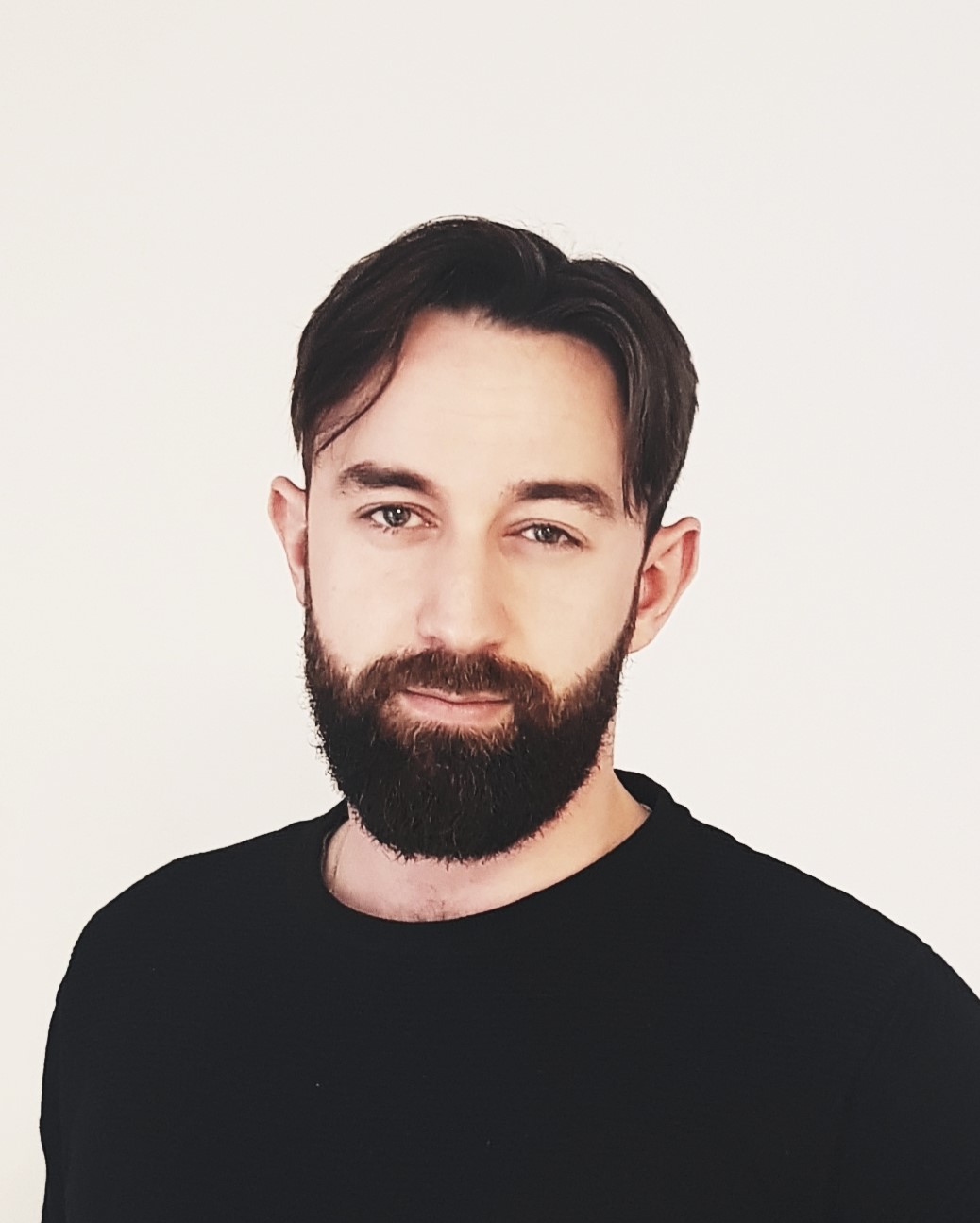
Interdisciplinarity plays an increasingly important role in neuroscientific research. Different perspectives, views and approaches allow comprehensive and multifaceted answers to neurobiological questions. As a biomedical engineer, I am mainly interested in technical approaches including the development of experimental setups to solve diverse scientific questions. In my PhD project I am working on the implementation of a 2-photon setup for optogenetic stimulation based on computer generated digital holography to characterize neuronal circuits in zebrafish brain. Furthermore, I am investigating behavioral and neurophysiological effects of electrical stunning on zebrafish larvae to contribute to an improvement of animal welfare in scientific research in the sense of 3R.
Tim Hladnik
PhD Candidate – tim.hladnik{at}cin.uni-tuebingen.de 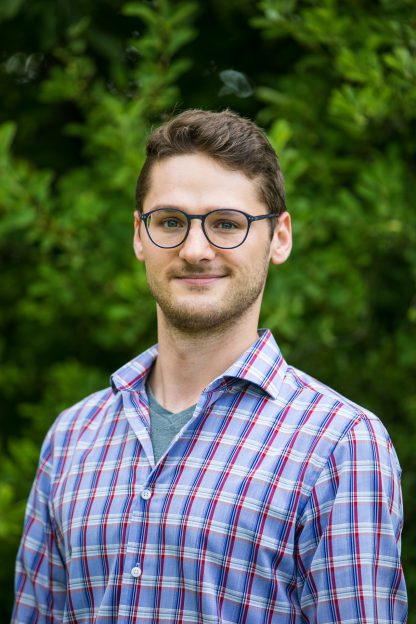 I obtained my bachelor’s degree in biology studying the jamming behavior of wave-type weakly-electric fish and my master’s degree in neurobiology about the neuronal encoding of their electric fields. My current focus of study is on how the visuomotor systems of zebrafish and african cichlids are adapted to the statistics of their natural habitats and how these adaptations differ based on their respective habitats and innate behaviors. I am currently working on constructing a visual display setup that will allow us to faithfully display naturalistic, multi-color movies to fish while using 2-photon calcium imaging to record whole-brain activity in the visual system.
I obtained my bachelor’s degree in biology studying the jamming behavior of wave-type weakly-electric fish and my master’s degree in neurobiology about the neuronal encoding of their electric fields. My current focus of study is on how the visuomotor systems of zebrafish and african cichlids are adapted to the statistics of their natural habitats and how these adaptations differ based on their respective habitats and innate behaviors. I am currently working on constructing a visual display setup that will allow us to faithfully display naturalistic, multi-color movies to fish while using 2-photon calcium imaging to record whole-brain activity in the visual system.
Giulia Soto
PhD Candidate – giulia.soto{at}cin.uni-tuebingen.de 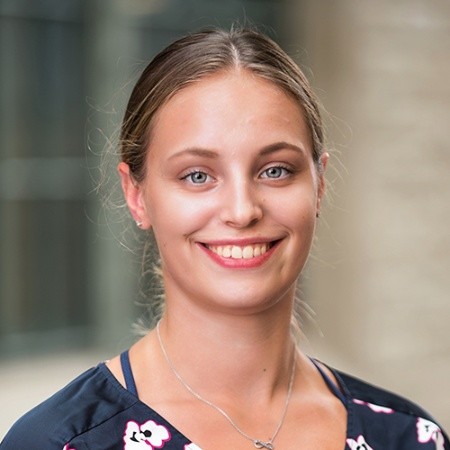
I received my Bachelor’s degree in Neuroscience at the University of Illinois at Chicago, studying tau protein modulation in Alzheimer’s and my Master’s degree in Biotechnology at Northwestern University, studying neuromodulation of hippocampal neurogenesis. Now in my PhD project I am interested in an evolutionary comparison of the visuomotor phenomenon saccadic suppression between monkeys and zebrafish. Saccadic suppression has traditionally been studied as a psychophysics phenomenon in primates. But in recent years the focus of the field has shifted towards understanding the circuitry that underlies the phenomenon. So I aim to characterize and compare, both theoretically and experimentally, saccadic suppression at various processing stages in zebrafish and monkeys.
Yunyi Cong
PhD Candidate I obtained my Bachelor’s degree and my master’s degree in Clinical Medicine from Jilin University, studying the application of nano-medicines in ophthalmic diseases. In my PhD project, I am currently focusing on how information from different visual processing channels is combined to allow zebrafish to navigate in its environment. With 2 Photon-Calcium imaging, the effect of pretectum on motion feature extraction in the tectum of zebrafish will be explored, revealing underlying task-specific visual processing mechanisms as well as changes in coding during ongoing behavior that likely improve task performance.
I obtained my Bachelor’s degree and my master’s degree in Clinical Medicine from Jilin University, studying the application of nano-medicines in ophthalmic diseases. In my PhD project, I am currently focusing on how information from different visual processing channels is combined to allow zebrafish to navigate in its environment. With 2 Photon-Calcium imaging, the effect of pretectum on motion feature extraction in the tectum of zebrafish will be explored, revealing underlying task-specific visual processing mechanisms as well as changes in coding during ongoing behavior that likely improve task performance.
Lukas Sodan
PhD Candidate – lukas.sodan{at}student.uni-tuebingen.de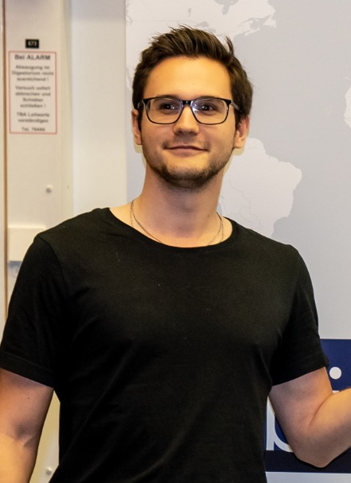
I completed my bachelor’s degree in Cognitive Science studying garner interference in grasping and judging tasks in Tübingen. I followed up with a master’s degree in Cognitive Science right after and decided to stay in Tübingen. As a cognitive scientist, I was interested in designing, implementing, and evaluating my own experiments. To that end, I specialized during my master’s degree in working memory research using VR-Methods and am continuing in this direction and building on previous experience for my PhD. More specifically, I am researching behavioral trade- offs between acquisition and memorization of information to solve pattern replication tasks, depending on experimental setup and task difficulty. Besides that, I am also engaged in a fair amount of volunteer work in the cognitive science student council and overall student representation at the university in Tübingen.
Other Lab Members
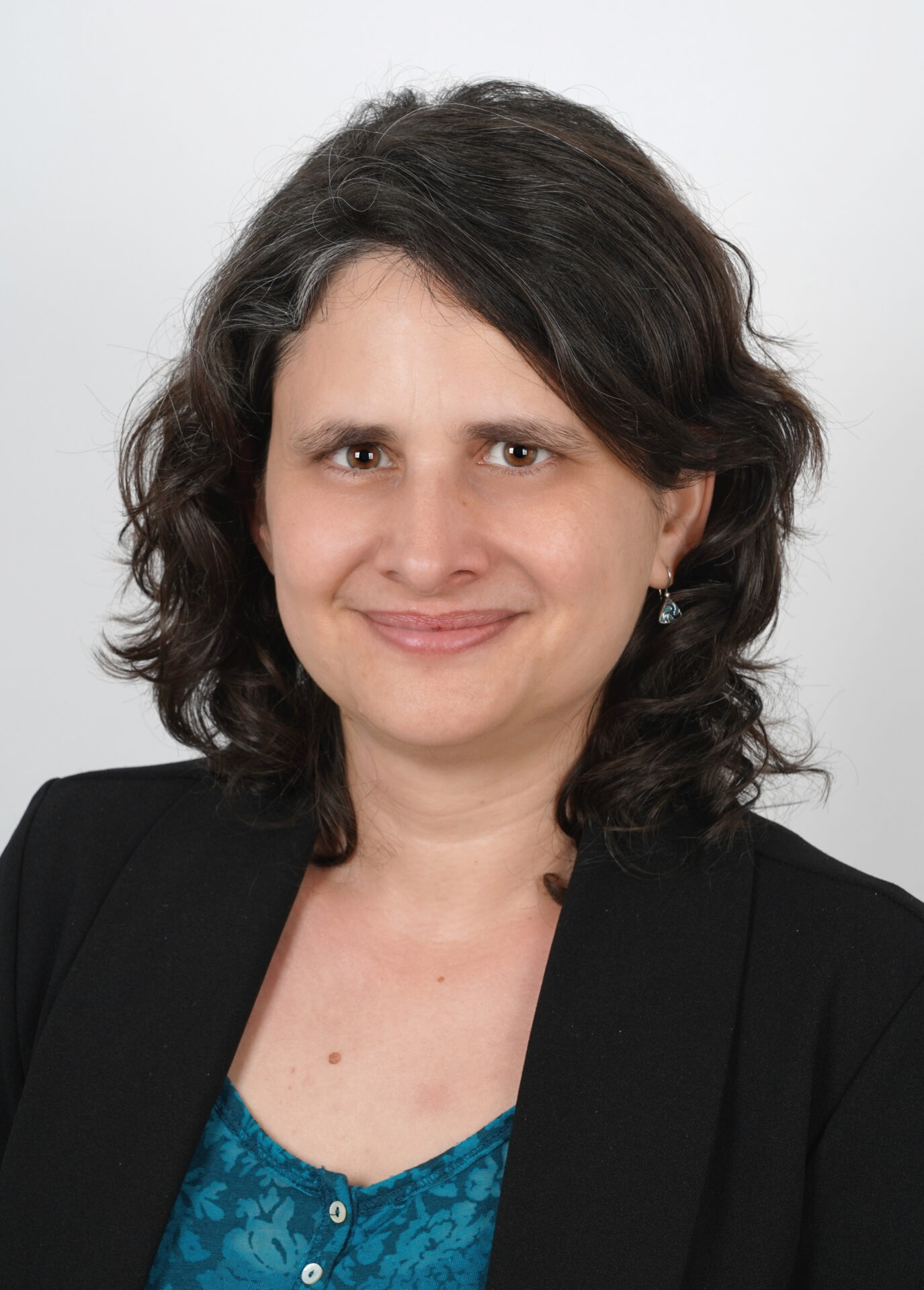 Secretary |
 Technician |
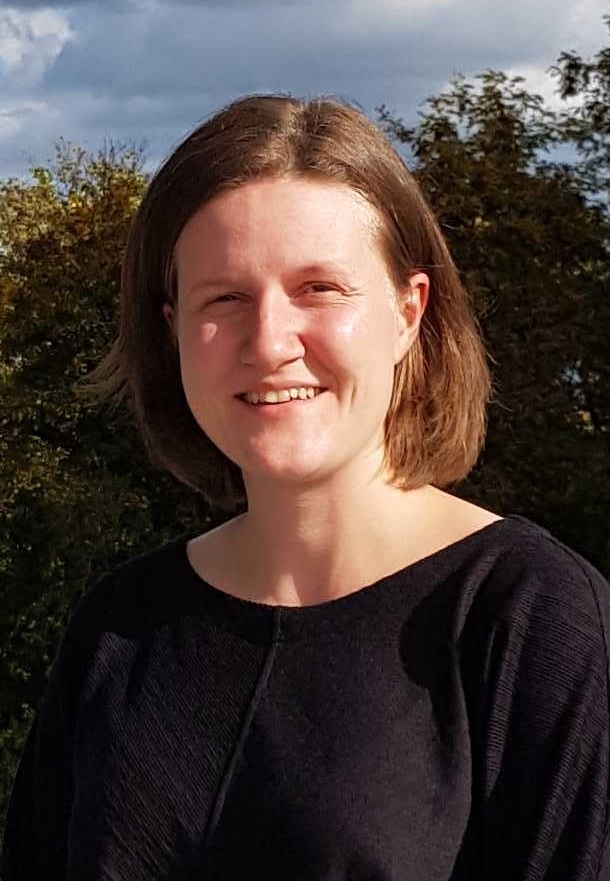 Research Assistant |
Alumni
PhD Thesis:
- Yue (Nash) Zhang – (postdoc: Mark Hübener’s lab, MPI Munich)
- Claire Leyden – (career in industry: Takara, France)
- Kun Wang – (postdoc: Marta Zlatic’s lab, Cambridge)
- Christian Brysch – (postdoc: Arrenberg Lab, Tuebingen)
Scientists:
- Sabrina Fuchs
MSc Thesis:
- Daniele Cafaro
- Gabriel Möller
- Laurian Deligand
- Rebecca Meier
- Ruoyu Huang
- Bega Karadza
- David Burkhardt
- Sura Mohammed
- Wiebke Nörenberg
- Güniz Göze Eren
- Timo Brüggemann
- Nina Omejc
BSc Thesis:
- Ben Barner
- Christiane Fichtner
- Jonathan Grimm
- Julian Fix
- Melina Lau
- Pascal Schmit
- Sara Widera
- Thaddäus von Wagner
- Natalie Fischer
- Florentyna Debinsky
- Clara Simacek
- Maximilian Wandl
Research Assistants:
- Julia Fechner
- Buket Solak
- Damla Ayyildiz
- Polina Volos
- Remoun Gorgy
- Sarah Eisele
- Sidney Frey
- Theresa Heier
- Julian Hinz
- Alice Chevrollier Oria
- Alina Ritz
- Eleanor Schaber
- Konstantin Willeke
- Malav Shah
Internships and Lab Rotations:
- Samuel Suhai
- Lina Afflerbach
- Sabrina Buss
- Laura Geissler
- Eduarda Streit-Morsch
- Fanghua Hu
- Gamze Özata
- Julianne Skinner
- Ibrahim Tunc
- Andreas Neusch
- Chiara Fornetto
- Nikos Maragkos
- Oleg Vinogradov
- Joe Sheppard
- Moritz Harter
- Melanie Stock

